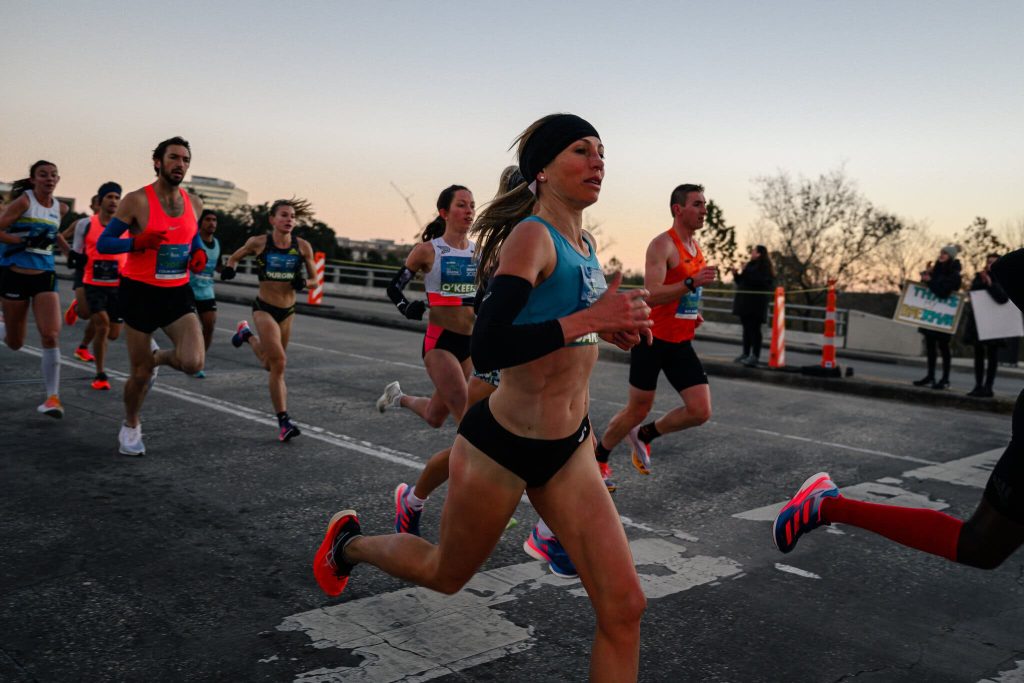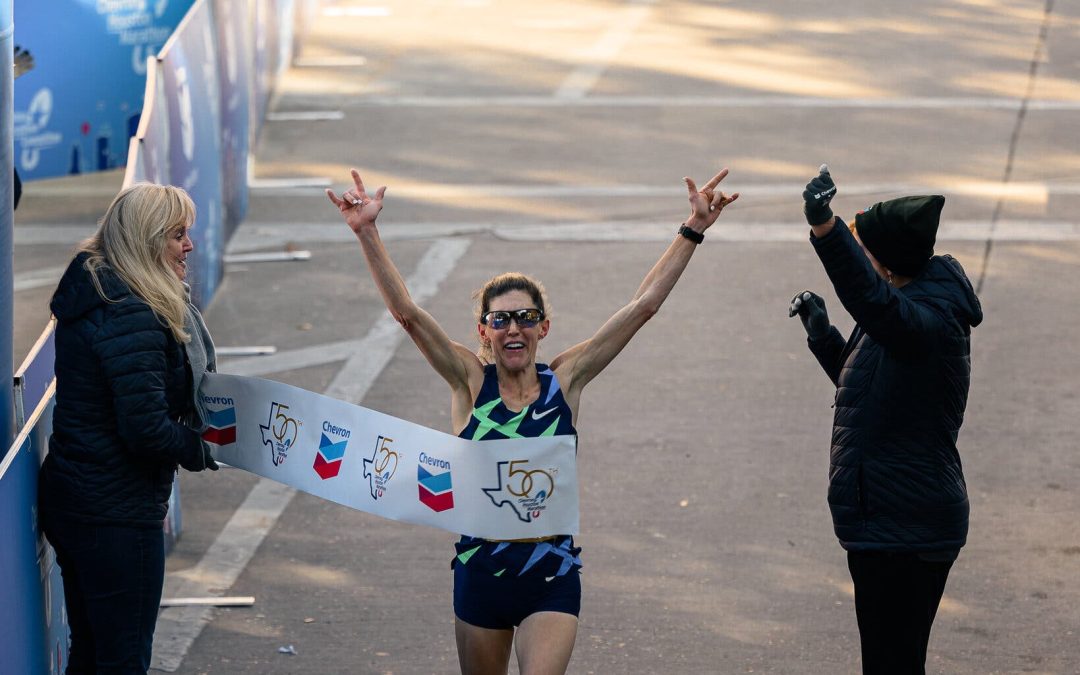On Sunday, two mothers in their late 30s set new American records in the marathon and the half marathon. It’s a sign of things to come.
Keira D’Amato and Sara Hall are still processing what happened Sunday.
On the same course in Houston, both set endurance records for American runners, in one case surpassing a mark that had stood for more than 15 years. And both helped redefine what it means to be an elite runner — and a mother — in her late 30s.
Hall, 38, ran the Houston half marathon in 1 hour 7 minutes 15 seconds, besting Molly Huddle’s previous American record of 1:07:25, set in 2018. D’Amato, 37, ran the Houston marathon in 2:19:12, breaking Deena Kastor’s longstanding record of 2:19:36, set in London in 2006.
Both knew they were capable of running those times. But neither knew if Jan. 16 would be the day they had both envisioned, years after many of their peers had hung up their competitive racing shoes.
“I haven’t been able to process it — it’s so confusing,” D’Amato said. “Part of me feels like it’s just beyond belief, and the other part of me is like, ‘Believe it, you’ve put in the miles in the rain and the cold and the heat, you’ve gotten up early and stayed up late, you’ve missed vacations.’ I believe it because I’ve been on the journey, but also I can’t wrap my mind around it.”
Together, D’Amato and Hall point to the future of American distance running, one in which runners are not expected to retire at 30, not disregarded upon starting a family, can control what success looks like and manage how they get there themselves.
Neither runner found herself at this point by following the traditional route of professional runners in the United States.
Fifteen years ago, on the same course, Hall watched her husband, Ryan, effortlessly set an American record time in the half marathon, 59:43, that still stands.
“My career could not have been any more opposite,” Sara Hall said. “It’s taken me a decade and a half of grinding and setbacks and disappointments.”
In 2009, Hall considered stepping away from competition. She had strong showings early in her career but was going through a series of challenges that had her contemplating what a future in running would look like.
“I always had success in the sport, and I didn’t realize how much I saw my self-worth and my belonging with other people contingent on that success,” Hall said of her mind-set then. “That period is when I went deep into my head and into my sense of belonging and stopped fearing failure, and felt more free to take risks in competition.”

Hall bet on herself and kept competing. She didn’t stop running even when “it didn’t really make sense on paper to a lot of people,” she said. She built a family with her husband, adopting four children from Ethiopia in 2015. She believed she had better days of running ahead of her, and when the times didn’t come, she chased “the feeling of flying.”
With the disappointments have come long-awaited accomplishments. After failing to qualify for the Tokyo Olympics at the U.S. marathon trials in February 2020, she shifted her focus to her next goal, written on a bathroom mirror: to set an American record. That fall, she ran the London Marathon in a personal-best time of 2:22:01, finishing second. Just over two months later, she raced in the Marathon Project in Chandler, Ariz., and finished in 2:20:32, then the second-fastest marathon run by an American woman.
D’Amato’s path took a different turn. She did leave the sport in 2009, her dreams for a professional running career dashed by a string of injuries. In the next eight years, she would begin a career in real estate and have two children while running recreationally as a way to meet people. In 2017, D’Amato ran a marathon with her husband, with a goal of finishing in under 3 hours 30 minutes. She finished in 3:14:54, signed up for another marathon and lowered her time to 2:47:00 that November.
She decided to go all in and took a bet on herself, too. “I sat on the sidelines for a decade wondering what if — what if I would have done things differently?” she said. “I lived with that for a decade, and then I finally found out.”

